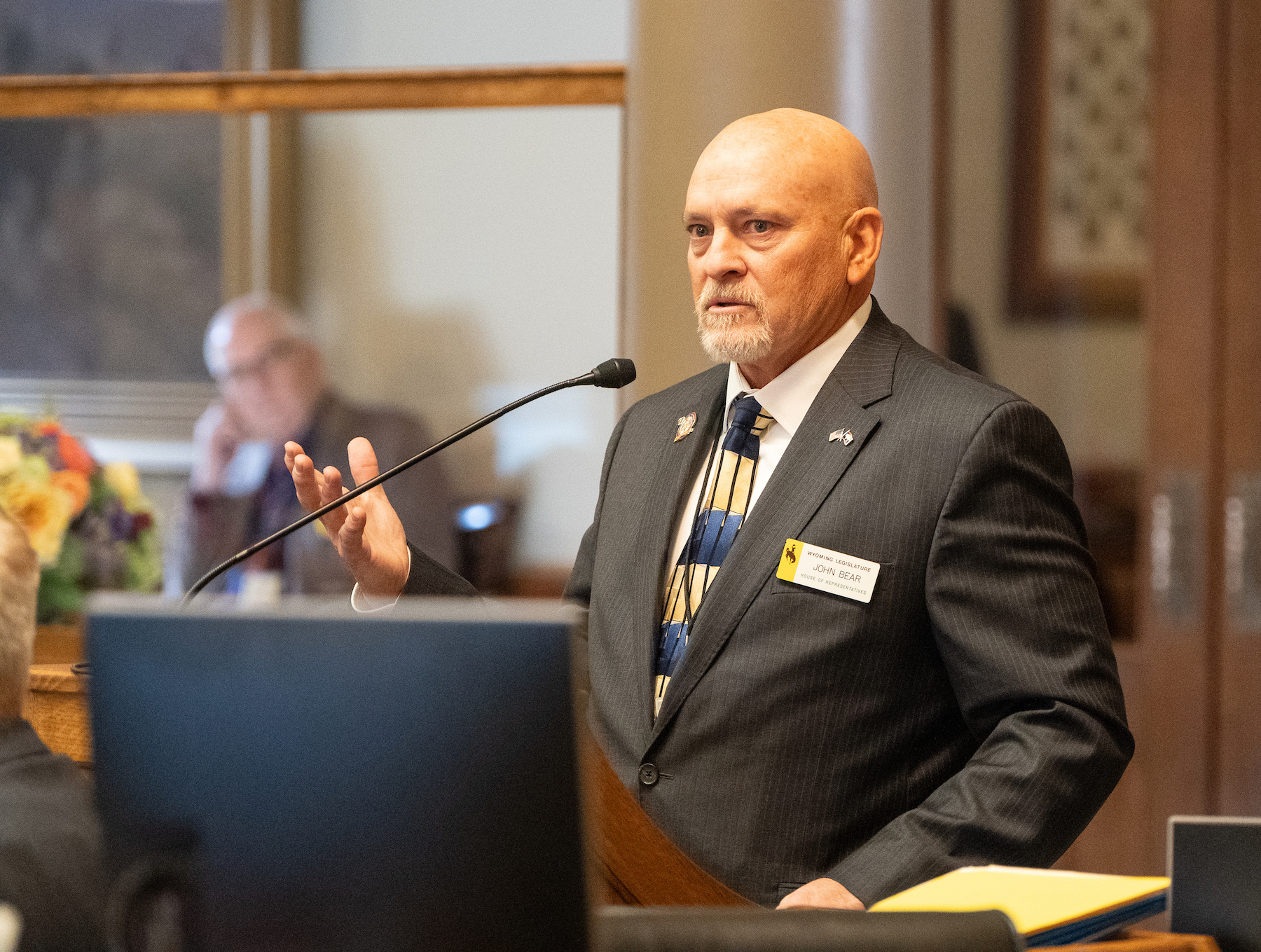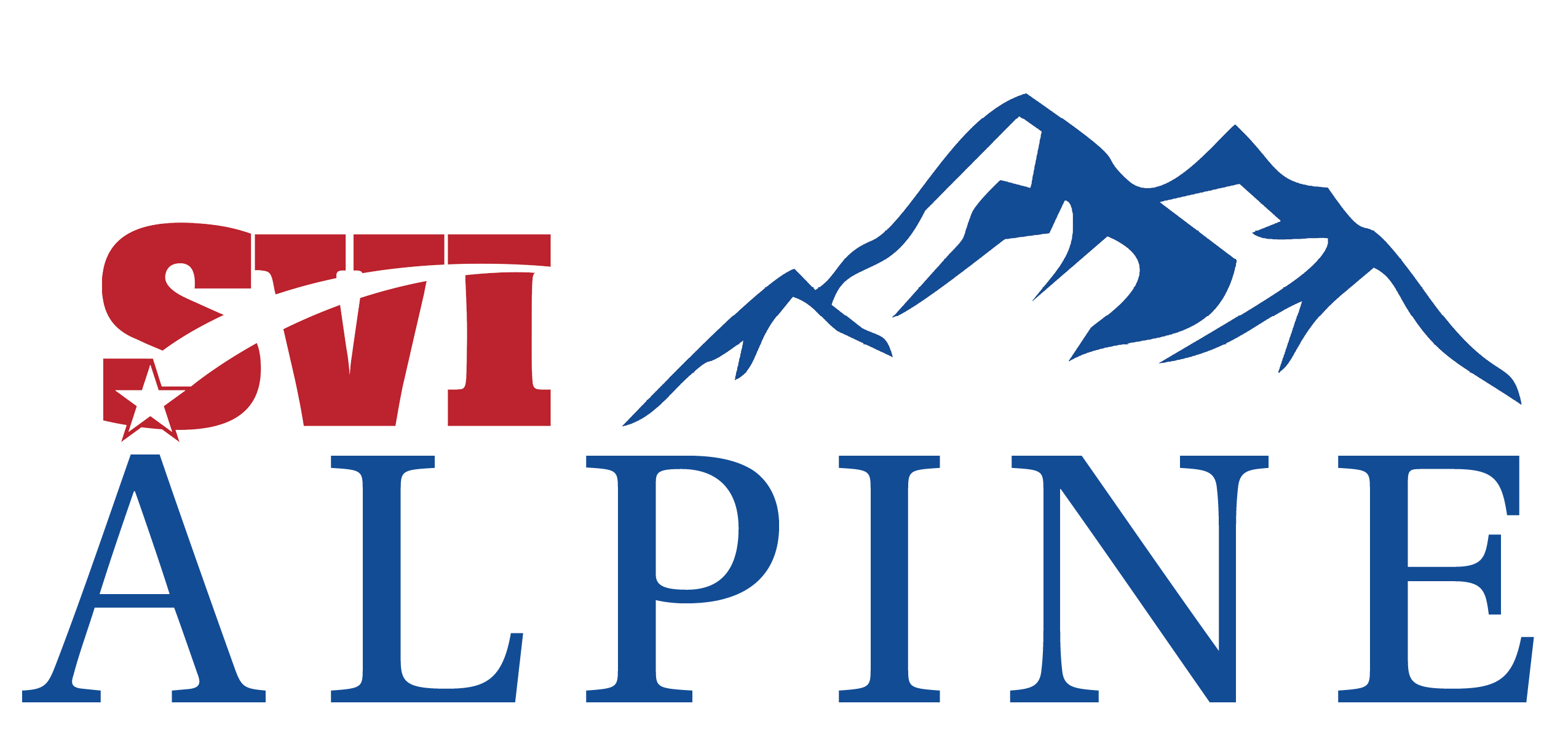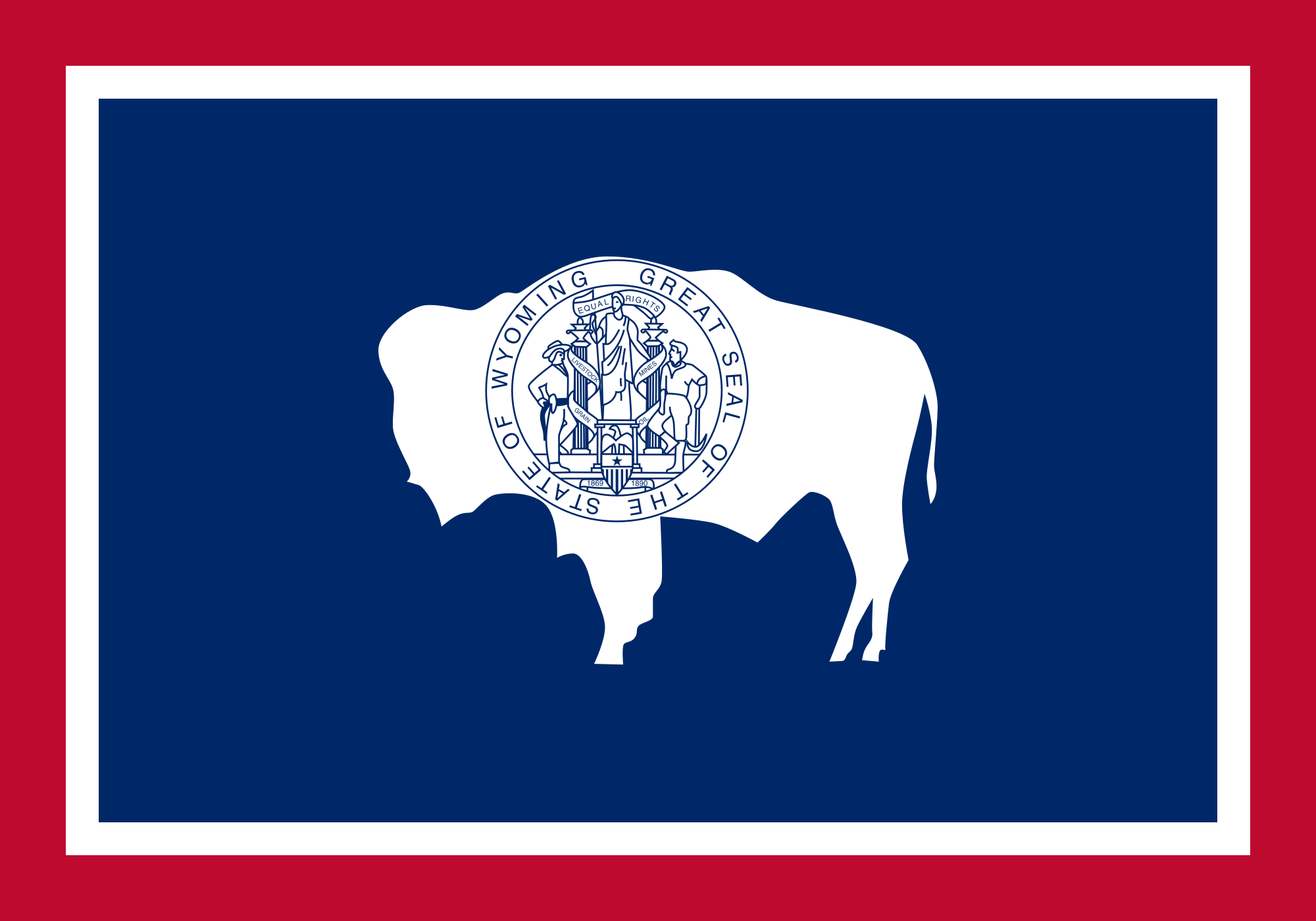Wyoming Freedom Caucus calls for more tax cuts
By Wyoming News Exchange
November 3, 2025

Representative John Bear, R-Gillette, speaks during the morning session of the 68th Wyoming Legislature January 17, 2025 in the House Chambers. Photo by Michael Smith
By Noah Zahn
Wyoming Tribune Eagle
Via- Wyoming News Exchange
CHEYENNE — State lawmakers who are part of the Wyoming Freedom Caucus, known for its hardline conservative stances, laid out their fiscal goals for the coming budget session on Thursday, including finding ways to further reduce the tax burden on the state’s residents.
Rep. John Bear, R-Gillette, chairman emeritus of the Wyoming Freedom Caucus, said he hopes to set some gentle tax cut targets, in addition to limiting government growth in Wyoming.
However, there were no direct answers as to whether the Freedom Caucus will pursue further property tax cuts, or if it will try to backfill communities that are struggling to provide some local services following already enacted cuts.
The conversation centered around drastically curtailing state expenditures by reducing spending and leveraging the state’s record-high investment earnings to justify tax relief for Wyoming citizens.
Thursday’s news conference followed the release of the Consensus Revenue Estimating Group’s October report.
That report confirmed that Wyoming’s investment portfolio produced an alltime record of $1.86 billion in earnings.
This revenue stream, consisting of interest, dividends and realized capital gains, surpassed the combined total of severance taxes and federal mineral royalties, marking the first time in state history that investments were the top revenue source.
Bear framed this financial success as a mandate for giving back to taxpayers.
He said that while the state successfully increased its savings by more than 10% in recent years, amassing over $2 billion in reserves, Wyoming families have not seen corresponding relief.
Rep. Scott Smith, R-Lingle, pointed out the discrepancy, noting that the average increase in residential property taxes (11.9%) far outpaced the rise in median household income (3.9%).
Bear also indicated he has asked the Wyoming Department of Revenue to work with the Legislative Service Office to conduct dynamic studies looking at consumption taxes, like increased sales taxes.
“I think there’s been an effort for the last several years to see if there is an appetite to remove property taxes from residents and replace that with a consumption tax, like sales tax,” he said.
He added that he prefers this philosophy over a property tax, which he likened to a rent homeowners pay to the government.
Sen. Mike Gierau, D-Jackson, however, said statements like this raise red flags for him, saying consumption taxes are the most regressive taxes, meaning it disproportionately impacts lower-income residents.
“It would be crippling to this state,” he said. “If you want to see something that would really hurt the people of the state of Wyoming, do that.”
Pre-COVID spending goals
The primary objective for the Freedom Caucus is to prevent state spending from outpacing the growth of Wyomingites’ paychecks. Bear stated the committee’s goal is to return to “pre-COVID” spending levels, specifically reflecting the priorities of the state’s 2019 budget, which saw significant spending reductions.
Rep. Ken Pendergraft, R-Sheridan, emphasized the necessity of sustainability, citing the painful rollbacks of benefits that occurred during previous boom-and-bust cycles in 2017 and 2021. He stressed that to maintain essential services and avoid future cuts, the state must constrain government growth to the rate of inflation and population growth.
Following the meeting, Gierau said he disagrees with the precept of the statement that Wyoming needs to return to pre-COVID levels.
“The bottom line is, in the last 10 years, we have less employees than we had 10 years ago. We have cut spending. We are lean,” he said. “… I think the people of the state of Wyoming want a certain level of services.”
Among the boldest proposals is the plan to eliminate the portion of residential property taxes that fund local K-12 education.
Bear explained that under this plan, budget surpluses generated by restricted government growth would be channeled back to county governments to pay property taxes on behalf of homeowners, and 10% would be sent to a savings account.
Necessary spending
While seeking broad budget reductions, Freedom Caucus members indicated they will prioritize necessary government functions.
Bear confirmed plans to look at curtailing welfare services, an area where he has been critical of Gov. Mark Gordon. The Department of Health, which has the largest state agency budget, is also under review by a specialized subcommittee. Pendergraft said he hopes to cut the Department of Health budget with “discretion” and “compassion.”
Rep. Abby Angelos, R-Gillette, outlined key areas the committee deems “necessary spending” that need attention: funding for the developmental disability waiver; achieving stability for municipalities and counties through direct distribution and sales tax income; and reassessing state forestry and fire response following record-breaking wildfires.
As a special district, many local fire authorities across the state are funded solely though property taxes, and more rural ones are staffed by volunteers.
Bear proposed creating a new state-funded fire response team, comprising seasonal and full-time employees, intended to respond to emergencies across the state and serve as the first line of defense to relieve local volunteer fire departments. He said he hopes to begin working on legislation to support this next summer.
When asked if the Wyoming Legislature will successfully pass a budget in the 2026 session following the failure to pass a supplemental budget last year, Bear said it will be difficult, but he is confident it will be achieved.
Gierau cautioned that success depends heavily on the process, expressing hope that the Joint Appropriations Committee will discuss ideas during the upcoming hearings with departments and experts to produce a “fair product.”
He warned that resorting to numerous last-minute amendments on the floor, as seen in previous years, often results in failure.
Bear also acknowledged that the budget must ultimately mesh with the priorities of the governor, who wields line-item veto power.

